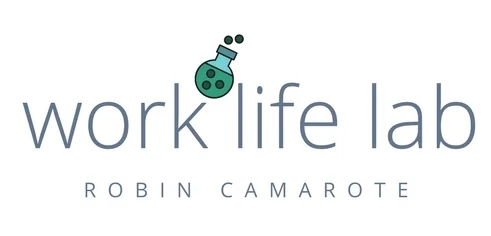Each individual's leadership skills fall somewhere along a broad spectrum from truly terrible to incredibly inspiring. I believe that wherever we are in our leadership development, there are simple, daily exercises that we can do to improve our skills-- in between courses, trainings, coaching, and just doing the hard work of leading and motivating staff.
Here are 5 exercises with accompanying questions and examples to spark some reflection and self-assessment.
- Make conscious choices: lead, follow, or watch from the stands. In the very next meeting on your calendar several issues will be raised. Some actions will be agreed to and assigned. And still, there will be a larger or more complicated issue that will go unmentioned or unresolved. This happens in every single meeting- you just have to train yourself to see them. Each of these bigger issues is an opportunity to consciously choose your role. Can you lead your organization out of this bigger problem? Is someone better suited to lead and needs supportive followers? Or, is it best to watch this one play out? All three can be appropriate responses. The important thing is that you choose. You make a choice instead of passively going with the flow. Making a choice, taking a stand is empowering. So, speak up for those you want to take on and lend support to those you want to help. For everything else, make it clear that you’re sitting on the sidelines—because it’s not your leg of the race.
- Listen closely for other people’s perspectives. Are you able to hear someone’s point of view without assessment or judgement? It’s difficult for me and I’ve wondered in the past why I should bother. It gets easier, and opens up more productive conversations, if you can reserve judgement and action until after hearing someone else’s point of view. Specifically, listen for times when people start with “I think” or “I feel” or “we should.” These are clues that they’re about to provide some insights into they’re processing the issue. They’re also words that trigger our subconscious and queue up a response of “well…I think, I feel, or we should…”
- Step up to solve today’s problem today. People I believe and respect* say credentials don’t matter as much as we previously believed. But they must matter, right? It’s a tough belief to shake. It’s been drilled into us since the beginning and the foundation higher education is based on. What matters instead are the results you can produce. This makes sense but putting all of the education and experience stuff on the back burner isn’t easy (at least for me) to do. What is more practical though, is resisting the tendency to not speak up because you presume that you don’t have the right credentials to contribute. There is so much important work to be done in our businesses and so much is going undone because the few in titled leadership roles couldn’t possibly get to all of it. They’re a bottleneck to brilliance—and rarely do they shut down good work intentionally. Never once in the history of all of my professional experience was a good idea turned away when someone offered to actually do the work too.
- Get the feedback you need—not just what your boss or team is offering. As a leader, you need to know not only if you're hitting targets, but also whether your team is content under your leadership. There's only one way to find out — ask them to tell you how you're doing and if there's anything they wish they could change. They’re likely to be really uncomfortable with this request at first. Reassure them that it’s not a trick and no one is going to get in trouble for speaking about their honest perceptions and experiences. You then back this up by thanking everyone who offers feedback, making adjustments in your approach (if needed), and continuing to enthusiastically lead forward.
- Pick yourself to be on the team. Leaders create project teams and assume that everyone knows that they (the leaders) will fill a review and approval role. A more unique approach is to pick yourself for the team and make that clear upfront. State your role and how you’d like to work with everyone else. It's difficult to lead well if you don't consider yourself part of the group hashing through the tough challenges. What makes the project successful and the team look good is all of the same stuff that makes you look good too. So, being an actual team player first while leading is a pretty novel and effective approach.
